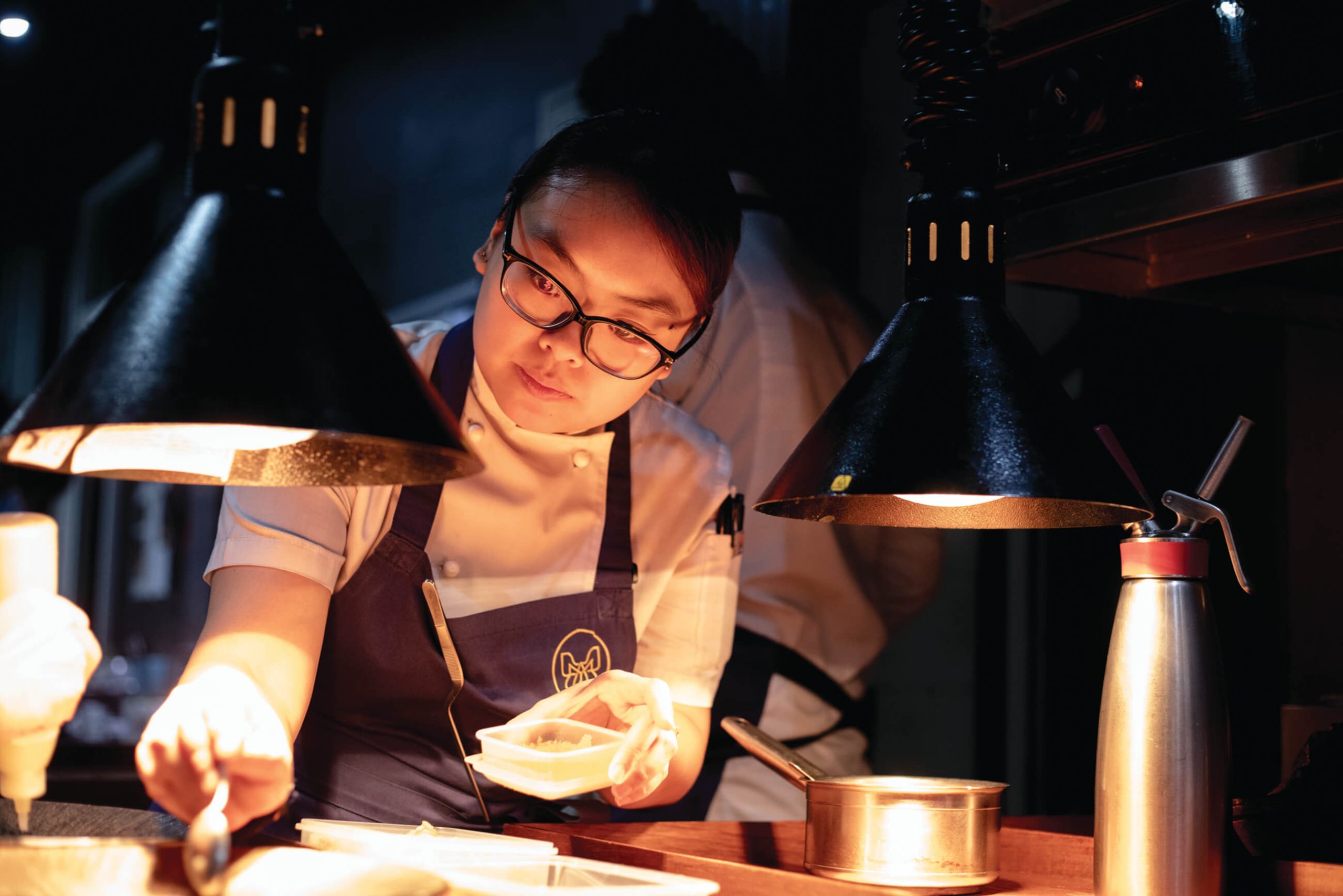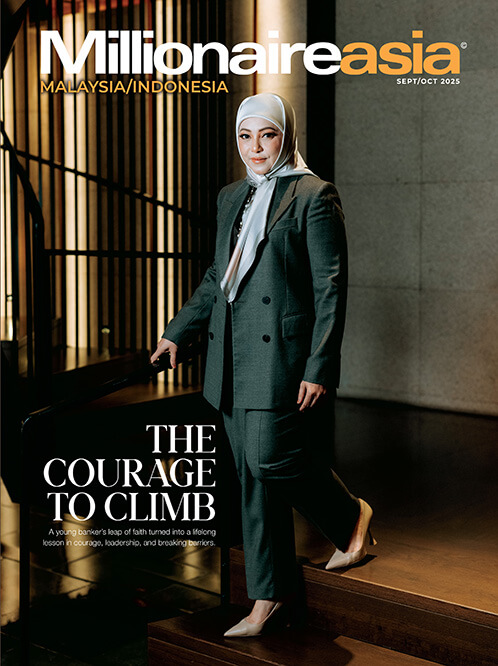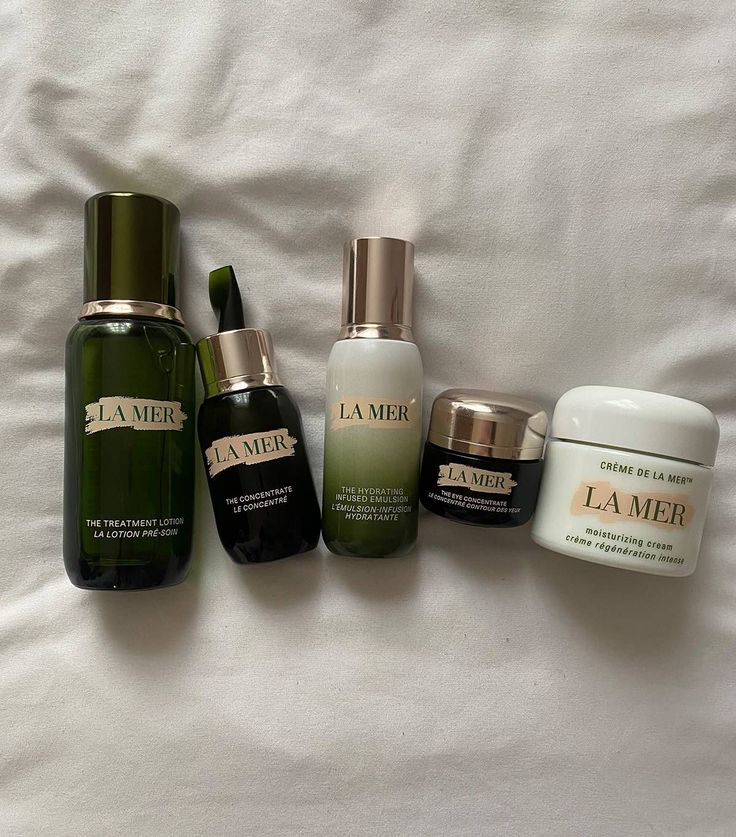With its charming blue façade and white trimmings, this two-storey house in the heart Bangkok looks perfectly unassuming from the outside.
But it packs an unexpected punch.
Here stands Mia, a modern European restaurant that’s emerged as a culinary powerhouse, earning a Michelin star after just five years in operation.
Another surprise: that Michelin star – an honour chefs and restaurateurs the world over dream about – came on the back of a team of novices, all of them on their first job.
These culinary rookies flourished under the guidance of founders Michelle Goh and Pongcharn “Top” Russell, a pair of dynamo chefs whose culinary careers have taken them around the world and who are now committed to making the restaurant they own a place of learning and self-actualisation for their staff.
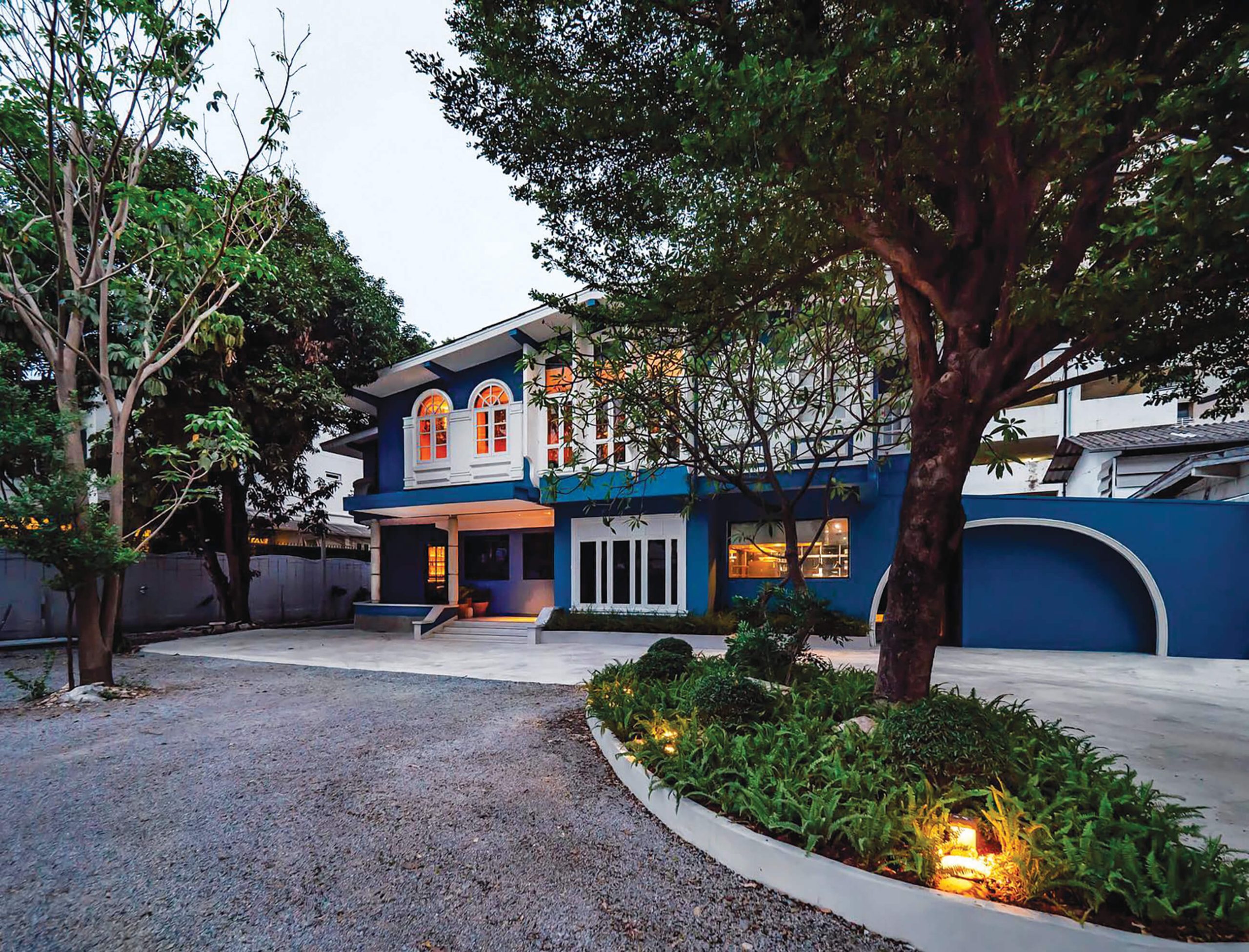
Sarawak-born Michelle Goh, 29, brims with pride when she speaks about her team, who she’s trained alongside her Thai partner Top. They’ve trained almost every single hire at Mia from scratch.
Goh and Top toiled long, hard hours in restaurants around the world to get to where they are today – and they want to share the techniques, experiences and lessons they’ve learnt with up-and-coming cooks, and help better empower them.
“For us, we were lucky enough to have the experience to be able to move overseas and be able to learn cooking outside of where we grew up,” Goh tells MillionaireAsia.
“We want to be able to give opportunities back to the local people: even though you are not able to (go overseas to) have an international experience, if you come and work at Mia, you will get that international experience.”
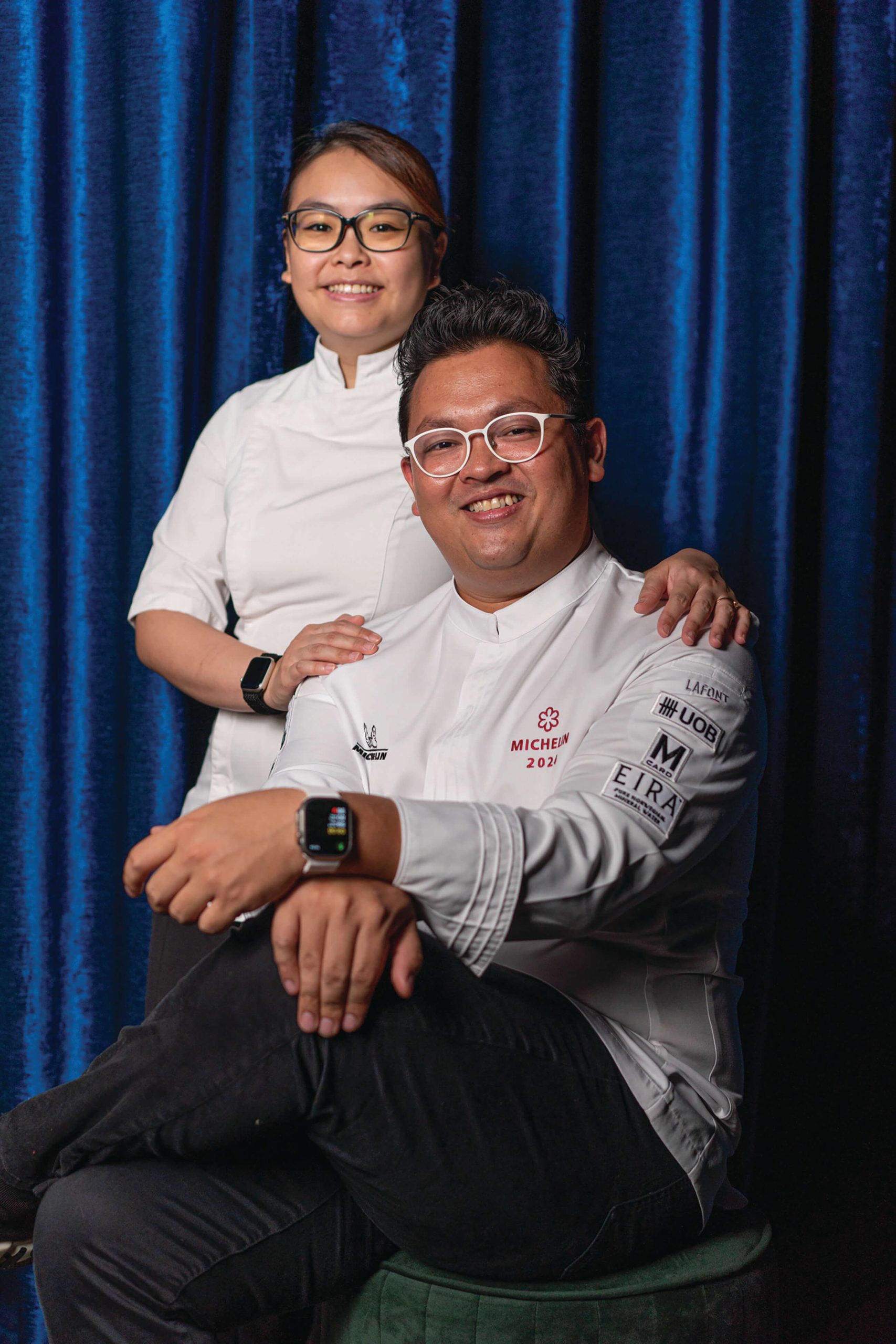
With the restaurant’s Michelin star, Goh has earned herself a place in history.
She is the youngest female Malaysian chef – and first-ever Sarawakian – to receive the honour.
She and Top blend European techniques with Asian flavours, creating a menu that is innovative yet grounded –paying tribute to their cultural backgrounds.
From her early days in Kuching, Goh felt more drawn to pastry.
“When I first started cooking, I did everything – from savoury (dishes) to desserts. But pastry came naturally to me,” she recalls.
Her journey began in secondary school, baking cupcakes for fundraisers for the marching band. She then embarked at 18 on her formal culinary education at Australia’s Le Cordon Bleu Sydney, where she was at the time the youngest student there.
She was a hungry learner – she’d eke out time during her studies to learn from respected industry giants like Anna Polyviou at the Shangri-La.
And after graduation, she quickly grew her skills working under the guidance of renowned chefs including the esteemed three-hatted Eleven Bridge by Neil Perry in Australia.
Her culinary journey also took her to Chef Jason Atherton’s Pollen Street Social in Singapore in 2015 before she moved to Thailand the year after, where she’s lived ever since.
Goh joined the two Michelin-starred restaurant Sühring in Bangkok where, at just 22 years of age, she assumed leadership of the pastry section.
It wasn’t easy.
She had to manage her team while overcoming language and cultural barriers as a Malaysian in a majority Thai kitchen. And she also had to earn the respect of colleagues as a young woman in an industry that is by and large male-dominated, and in an Asian setting where age matters.
But she learned to navigate that, learning the language, leading by example, and patiently trying to prove herself.
“You can’t expect someone to do something the way that you want them to, if you’re not doing what it is that you want and showing them every day that this is how you’re going to do it,” Goh explains.
Her prowess in the kitchen also spoke for itself.
During her tenure there, the restaurant not only earned its first Michelin star but also secured a promotion to two stars.
Goh feels the industry has evolved over the last 10 years in her time as a chef.
The pastry section was once perceived as the “girly” domain, but is growing to include a more balanced gender representation – just like the rest of the industry, which is now seeing more women joining its ranks.
Goh’s advice to aspiring female chefs is to “just go for it”, and seize opportunities as and when they come.
“When I was in culinary school, I was given the advice that you should always say yes to everything that you can, because if you can’t, someone else will,” she says.
Now that she’s co-managing a 20-member team in Bangkok, Goh is taking the chance to create new opportunities for the young to “just go for it”.
She’s dedicated to nurturing talent, collaborating with local universities to offer internships for their students and help new chefs get a foothold in this competitive industry.
Mia has just marked its fifth anniversary in July this year – and Goh’s already looking to the future.
She’s not ready to unveil her plans yet, but says: “We’re excited for what lies ahead.”
“Creating something we can be proud of, despite the challenges, is what makes this journey worthwhile.”
And with Mia, you can be sure exciting things are coming up on the horizon.
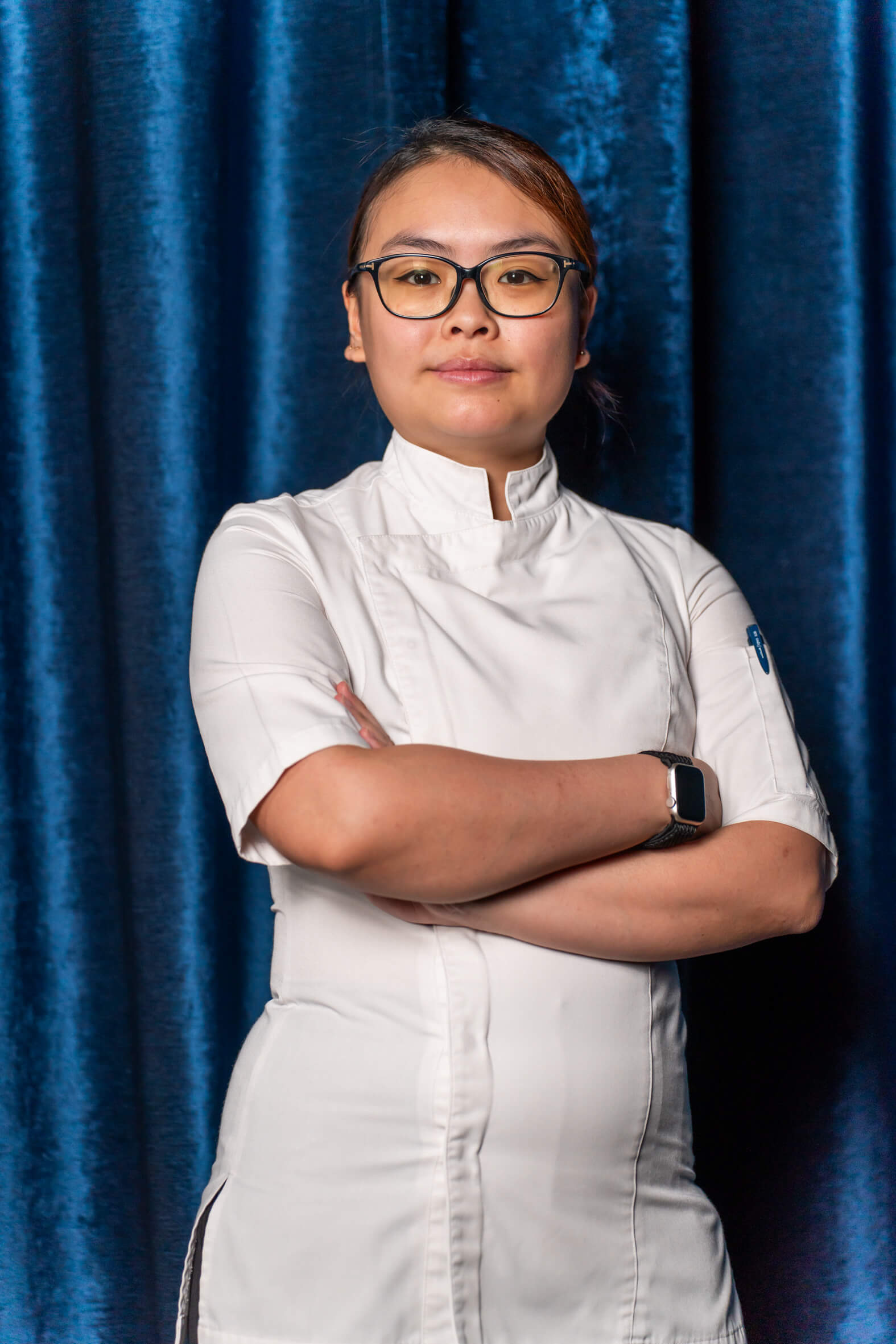
Q&A with Michelle Goh
What were some of your low points and how did you overcome them?
When I first started working at Sühring, they used to do a six-day work week. The hours are very long for chefs. I was coming in as kind of like a Chef de Partie. But being only 22 at the time and having to work with Thai people, not being able to speak the language, not understanding the culture, I think it was exceptionally difficult for me.
I’m Asian, so they don’t see me as a foreigner. But at the same time, I’m not Thai, so they don’t see me as one of their own.
And on top of that, I’m a woman and it was difficult for people to take orders from me. I think to understand Thai culture, it’s similar to Chinese culture – that they naturally have a lot of respect for people who are older.
This was the first thing that I had to overcome. You have to be patient.
And what, for you, were some of the high points?
We are currently in the best position we’ve ever been, not just for the restaurant, but also for myself personally.
I have a great team. We are making fantastic food that I’m proud to serve every single day. The diners come and everyone’s happy all the time.
And I think you can see the progression from when I first moved to Thailand and how much I struggled with being able to work with people with a completely different language, completely different culture, and how I’m able to kind of turn that around into creating something that I can be very proud of right now.
Do you find that collaborating with universities and offering internships helps the industry?
Yes, because learning how to cook in school is far from the reality of cooking in a professional kitchen.
When you’re studying how to cook, they’ll teach you all the basics, like how to hold your knife, how to cut this item, how to make this basic sauce, how to make this basic stock.
But when you’re in a real professional kitchen, no one is going to be there to hold your hand. Many things that you do learn is completely like outside of what you would typically get in culinary school. Things like time management, how to work under pressure, how to organize yourself and your section, how to portion out your food and make sure that you have enough, how to be able to work clean and tidy, food safety.
What is your definition of success?
For a lot of people, success means that you get a lot of accolades, you get a lot of recognition. But for us, is to ask – am I happy with where I am now?
Am I happy with the food that I’m serving to the customer now? And the answer is yes.
But do I also think that there’s room for improvement? Of course. I would be very sad if five years from now, we are exactly the same. I would like to see an evolution. I would like to see better quality food, more customers, a busy restaurant. You know, all those things for me are marks of success. There’s always room for improvement and it’s a never-ending journey.
